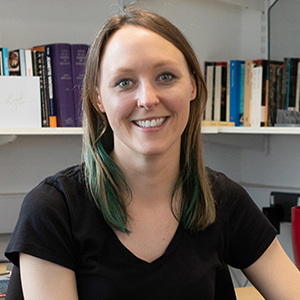My research is about reader responses to computer-generated texts. More broadly, and in more technical terms, I consider the social and literary implications of natural language generation. Although I’m based in English, my work wouldn’t be possible without regular collaboration with folks from computer science and the social sciences.
I earned an undergraduate degree in Book and Media Studies from the University of Toronto, and then a master’s degree in the History of the Book from the School of Advanced Study, University of London. After my master’s, I took a year to work in commercial real estate in Toronto. During this time, I kept bees, sold some rare and antiquarian books, and fell in love with the stock market.
I’ve really appreciated the incredible amount of support the University provides for doctoral researchers. My supervisors have been professional and personable. The staff at the Doctoral College offer high-quality training, which has helped me became a Fellow of the Higher Education Academy. The Doctoral College and my own school also provide financial support that has allowed me to present at numerous international conferences – I’ve been able to disseminate my research while exploring the world.

Doing a research degree is a completely different experience from doing a taught degree. There’s no one standing over your shoulder saying “do this, do that”. Your supervisors are there to provide guidance, but your research and progress are ultimately your responsibility. As a result, doing a PhD requires substantially more self-motivation and self-discipline than doing an undergraduate or master’s degree.
My advice to a future PhD student would be to establish a routine that works for you as early as you can, and try your best to stick to it. Treating your PhD like a day job helps you stay on track with your progression. Yes, you’re still a student (enjoy those student discounts!), but don’t let the scheduling flexibility afforded by your student status hold you back from getting things done.